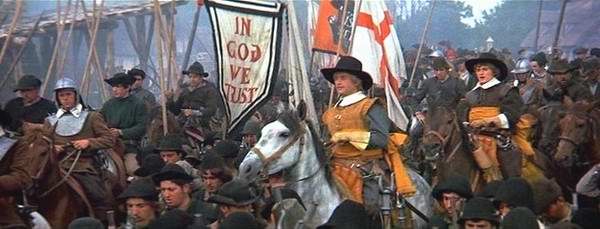Greet Andronicus and Junias, my kinsmen and my fellow prisoners, who are outstanding among the apostles, who also were in Christ before me.(New American Standard Bible)
Greet Andronicus and Junia, my relatives, who were in prison with me; they are prominent among the apostles, and they were in Christ before I was.
(New Revised Standard Version)
Greet Androni'cus and Ju'nias, my kinsmen and my fellow prisoners; they are men of note among the apostles, and they were in Christ before me.
(Revised Standard Version)
Greet Andronicus and Junia, my kinsmen and my fellow prisoners. They are well known to the apostles, and they were in Christ before me.
(English Standard Version)
Greet Andronicus and Junias, my relatives who have been in prison with me. They are outstanding among the apostles, and they were in Christ before I was.If you read carefully there are two particular points where the translations have made decisions pertaining to the text. The first being the proper "gender" of Junia(s) and the second being Andronicus and Junia(s) relationship to Paul and the apostles (Futhermore the question must be asked what does Paul mean by "apostle" in this context? We'll get into that briefly towards the end.) What is interesting here is that only two of the translations use the term "relatives" instead of kinsmen. Now with the history of the NRSV per gender-neutrality this should be of no surprise, whether rightly or wrongly, it always renders all-encompassing masculine terms in a neutral way, which is fine in my book. Now the NIV is a "dynamic-equivalence" translation and makes no bones about the fact it is not a literal translation. Now in mind of this both the commentaries on this passage by Matthew Henry and Martin Luther render it Junia and make mention that Junia is either Andronicus' wife or sister. Here is Matthew Henry's words on the passage:
(New International Version)
Salute Andronicus and Junia, my kinsmen, and my fellow-prisoners, who are of note among the apostles, who also were in Christ before me.
(King James Version)
4. Concerning Andronicus and Junia,v. 7. Some take them for a man and his wife, and the original will well enough bear it; and, considering the name of the latter, this is more probable than that they should be two men, as others think, and brethren. Observe, (1.) They were Paul's cousins, akin to him; so was Herodion, v. 11. Religion does not take away, but rectifies, sanctifies, and improves, our respect to our kindred, engaging us to lay out ourselves most for their good, and to rejoice in them the more, when we find them related to Christ by faith. (2.) They were his fellow-prisoners. Partnership in suffering sometimes does much towards the union of souls and the knitting of affections. We do not find in the story of the Acts any imprisonment of Paul before the writing of this epistle, but that at Philippi, Acts xvi. 23. But Paul was in prisons more frequent (2 Cor. xi. 23), in some of which, it seems, he met with his friends Andronicus and Junia, yoke-fellows, as in other things, so in suffering for Christ and bearing his yoke. (3.) They were of note among the apostles,Who also were in Christ before me, that is, were converted to the Christian faith. In time they had the start of Paul, though he was converted the next year after Christ's ascension. How ready was Paul to acknowledge in others any kind of precedency! not so much perhaps because they were persons of estate and quality in the world as because they were eminent for knowledge, and gifts, and graces, which made them famous among the apostles, who were competent judges of those things, and were endued with a spirit of discerning not only the sincerity, but the eminence, of Christians.I have italicized Henry's answer to our question on the "gender" of Junia(s). He evidently finds enough disagreement among his brethren concerning his rendering that he makes note of it. Not to get off-topic here but I do think one thing needs mentioned to prevent a side argument from occurring, I will quickly quote Henry's commentary from his words on Phoebe in verse one and two, "1. He gives a very good character of her. (1.) As a sister to Paul: Phebe our sister; not in nature, but in grace; not in affinity or consanguinity, but in pure Christianity: his own sister in the faith of Christ, loving Paul, and beloved of him, with a pure and chaste and spiritual love, as a sister; for there is neither male nor female, but all are one in Christ Jesus, Gal. iii. 28. Both Christ and his apostles had some of their best friends among the devout (and upon that account honourable) women. (2.) As a servant to the church at Cenchrea: diakonon, a servant by office, a stated servant, not to preach the word (that was forbidden to women), but in acts of charity and hospitality." I also Recommend Dr. J. Ligon Duncan's Sermon on Romans 16:1-2.
Now I want to take a look at the apostle question quickly. We will look to John Calvin in his commentary on the passage to see his answer (Calvin also renders it Junia, btw).
7. Salute Andronicus Though Paul is not wont to make much of kindred, and of other things belonging to the flesh, yet as the relationship which Junia and Andronicus bore to him, might avail somewhat to make them more fully known, he neglected not this commendation. There is more weight in the second eulogy, when he calls them his fellow-prisoners; for among the honors belonging to the warfare of Christ, bonds are not to be counted the least. In the third place, he calls them Apostles: he uses not this word in its proper and common meaning, but extends it wider, even to all those who not only teach in one Church, but also spend their labor in promulgating the gospel everywhere. He then, in a general way, calls those in this place Apostles, who planted Churches by carrying here and there the doctrine of salvation; for elsewhere he confines this title to that first order which Christ at the beginning established, when he appointed the twelve disciples. It would have been otherwise strange, that this dignity should be only ascribed to them, and to a few others. But as they had embraced the gospel by faith before Paul, he hesitates not to set them on this account before himself.Calvin, as is nearly unanimous in the commentaries I checked, makes a distinction between the use of "Apostles" as Paul and others use it to describe the original 12 Apostles in Acts and the Gospels and Paul's use of it here and other places in his letters. We must take note that the word apostle in Greek can mean several different things. Danker's Greek-English lexicon gives five different meanings for the New Testament and contemporary Greek use. 1) "Messengers without extraordinary status", (Phil 2:25). 2) "Messengers with extraordinary status" (Epictetus 2, 22, 23 of Cynic wise men). 3) "Of prophets" (Luke 11:49, Rev. 18:20). 4) "Of Christ" (Hebrews 3:1). 5) "A group of highly honored believers with a special function as God's envoys" (Romans 1:1, 11:13, Acts 14:14, Rom 16:7, Gal 1:19) and 5a) "Then especially of the 12 Apostles" (Matt 10:2, Mark 3:14, Luke 22:14)
This all being said it is not the purview of this post to go into anymore detail per the use of the word "apostle" in the New Testament and elsewhere other than to say it certainly is ambiguous in this context and nearly unanimous in the commentaries that Paul uses the word apostle in this place with the first meaning given by Danker in mind, that of a "messenger without extraordinary status". Feel free to disagree but given the context and the way Paul uses the word to describe himself and those gathered at the Jerusalem Council it is very unlikely that he was using "apostle" to mean anything other than just a "messenger" of the Gospel.
Now I think this has given us plenty to discuss and ponder. I'd like to hear your thoughts.












8 comments:
You do like lightning rods, don't you ....
Nonetheless, it appears self-evident that Paul does, in fact, most often use apostle with a different meaning. (Often he appears to be exclusively referring to those we call the Apostles.) He departs from this in the case of himself - but he is claiming a parallel authority from Jesus Christ to that of the Apostles. This passage does not appear to have the same usage in mind at all.
Agreed Will...
I find the Junia argument quite specious. Regardless of the gender of Junia (in fact I agree with Henry that Junia is a she) the text in no way confers "Apostlehood" (in the greater sense) on either Andronicus or Junia.
It would appear that special qualifications were required to replace Judas as part of the original 12 - Paul being the exception. I found the following quote very interesting.
Act 1:20 "For it is written in the Book of Psalms, "'May his camp become desolate, and let there be no one to dwell in it'; and "'Let another take his office.'
Act 1:21 So one of the men who have accompanied us during all the time that the Lord Jesus went in and out among us,
Act 1:22 beginning from the baptism of John until the day when he was taken up from us--one of these men must become with us a witness to his resurrection."
Act 1:23 And they put forward two, Joseph called Barsabbas, who was also called Justus, and Matthias.
Act 1:24 And they prayed and said, "You, Lord, who know the hearts of all, show which one of these two you have chosen
Act 1:25 to take the place in this ministry and apostleship from which Judas turned aside to go to his own place."
Act 1:26 And they cast lots for them, and the lot fell on Matthias, and he was numbered with the eleven apostles.
I agree with your estimation of the gender of Junia. But that seems to me to be quite irrelevant to what is being said. Both Machaira's point, and Paul's general usage of the term is different. Neither Andronicus nor Junia could rightly be termed Apostle in the greater sense - so gender is quite beside the point.
I understand to a degree the motivation of the attempt to extend the designation - at least I imagine so. I suspect this is used to loosen 'apostolic' authority - so that some imagined diversity / pluralism / heterodoxy can be read into early Christianity. The misinterpretation of this verse fails to make that case, but it provides an easy argument designed to confuse.
Hey, they (the revisionists)can say that if Junia/s was a guy, then Junia/s and Andronicus were gay lovers and that Paul recognized their relationship as a marriage!
(From the TAMFS isogetical playbook, used by Lisa Larges)
:)
Will,
I agree with your point on Junia's gender. Junia's female gender and Paul's use of Apostle is used as an argument by some as a source text for Women's Ordination.
Toby,
I did not even think about that but you are right. Great Point.
Well done Toby. I didn't think about it.
So whats wrong with your mom being Ordained?
Post a Comment